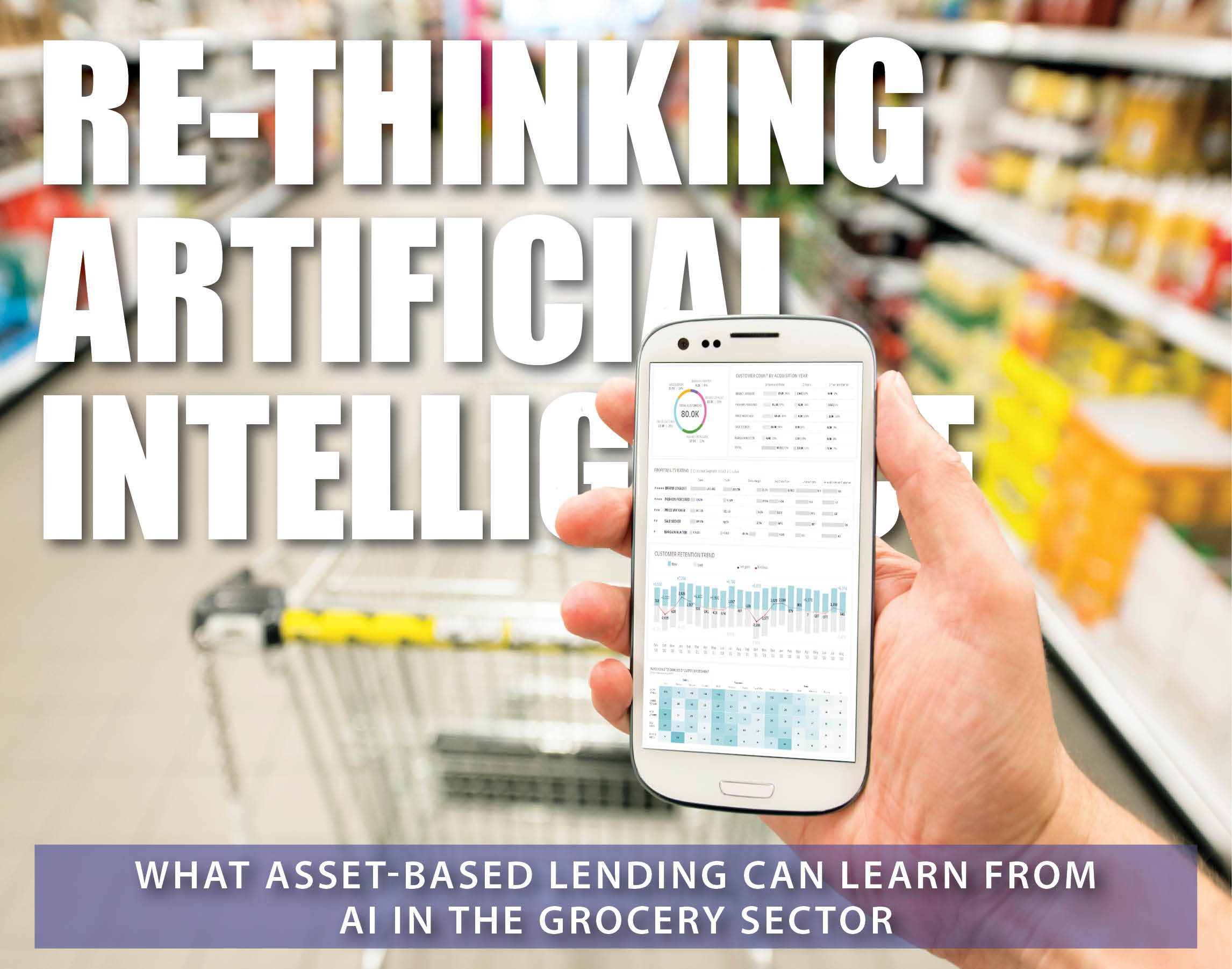
What Asset-Based Lending Can Learn from AI in the Grocery Sector
By: Bradley W. Snyder
OpenAI’s bombshell release of ChatGPT underscores two realities that ought to be top-of-mind for asset-based lenders everywhere.
The first is that artificial intelligence—essentially, machines that sift through vast quantities of data to identify patterns and tell themselves what to do—will play a bigger role in borrower health. The second is that ABLs need to adjust to more complex datasets to keep pace.
Consider what is already happening in the grocery sector. Bigger companies like Kroger and Walmart have long spent billions of dollars on data and tech. As AI and similar solutions have become more accessible, opportunities have started to emerge for smaller borrowers to get in on the act.
Beyond the wobbly wheel
This past February, San Francisco-based Instacart announced a slew of digital solutions that could help independent grocery wholesalers and retailers better compete. According to Instacart, these apps and tools are designed to help grocers capture data at the most granular level, generate new ad revenue, bring more of their stores online, “create connected in-store experiences” for shoppers, and “seamlessly offer end-to-end fulfillment.” They include updates to the smart cart system that Instacart acquired in 2021, as part of its $350 million acquisition of artificial intelligence startup Caper AI.
The digitally-connected, AI-driven carts currently being produced as a result of that Instacart-Caper AI merger are a far cry from what shoppers have been pushing around the supermarket ever since Sylvan Goldman of Oklahoma patented the grocery cart in 1940. Indeed, these new machines are more like all-in-one tech platforms and computer servers on wheels.
On a recent business trip, I drove out to a Cincinnati suburb to visit a Kroger store that happened to be piloting Caper AI’s technology. The latest iterations of these camera-equipped carts are able to auto-detect items by drawing from a deep-learning database of more than 20 million product images. Shoppers can simply toss products into some versions of these carts—no barcode-scanning required—and they are instantly added to the bill.
I wanted to see what would happen if I took my potato chips out of the cart and put them back on the shelf. They disappeared from my tally. But what if I needed to get some apples or bananas? Put your fruits and veggies in the cart and the system auto-identifies and weighs them. The bottom of the cart doubles as a scale.
When I was finished shopping, I paid on the POS terminal attached to the cart and just exited using a special lane. I stopped to see if I needed to prove to someone that I had paid. “You’re good,” the clerk said, waving me on.
AI-fueled data plays
Why would Instacart spend $350 million to buy an artificial intelligence company? It matters that the system makes shopping easier (the only thing worse than conventional checkout is the self-scan lane). However, it is also a way for grocers to tap into the manifold benefits of deep learning. By leveraging these new data streams, they can improve customer and corporate operations in modern ways.
Caper AI’s technology analyzes shopping patterns and responds by recommending various products and deals—including targeted ads paid for by any of 5,500 CPG companies. Shoppers have reasons to look at that screen mounted to the cart: It doubles as an item-finder, with an in-store navigator that is a bit like Google Maps.
In addition to collecting shopper-purchase data, the Caper AI system tracks where people go in the store and collects other data that grocers can later use to manage inventory and optimize store layouts.
Moving forward, asset-based lenders and appraisal and disposition firms can count on retailers, grocers and other borrowers to get more sophisticated about collecting and analyzing customer and product data. An explosion of third-party vendors—some of them inspired by the buzz created by ChatGPT—will give them more innovative, AI-based ways to collect and analyze massive amounts of information.
In one survey published this past January, 68 percent of about 200 U.S.-based retailers (not including wholesale clubs, auto parts stores and business services/office suppliers) said they planned to boost their retail tech spending over the next few years.
How ABLs should respond
The ABL sector is well aware of the power and potential of big data. Moving forward, assessments of borrower health and asset value will increasingly need to account for the role of AI and tech at the company. Is the borrower woefully behind on these fronts or pushing ahead? To what extent have merchants used these tools to unlock the full potential of their inventory or customer base? What is the potential value of the data the company has collected and the systems it employs? Is this information actionable?
Answering such questions will require expertise more typical of a data scientist than a merchant. Companies that already employ in-house and consultant experts on FF&E, retail inventories and all manner of industrial equipment will need to bring such expertise on board.
Some in the ABL sector are doing precisely that, hiring quants and rolling out new systems to ramp up their data-collection and analysis. They are also looking for ways to apply deep-learning methodologies to areas such as inventory rebalancing, customer segmentation, advertising and marketing analysis, and more.
For decades, ABLs have been able to rely on some fairly high-level assumptions about both borrowers and their inventories. The continued advancement of data and tech—not to mention the global buzz created by ChatGPT—points to the need for a higher-resolution picture made possible by automation, machine-learning and more robust datasets.
As the ABL sector evolves, merchants will still make plenty of valid assessments based on their gut feelings and years of experience. In other cases, though, the Aha! moment will come from an AI that has sifted through an ocean of data in a matter of seconds.
This article appears in ABL Advisor.




